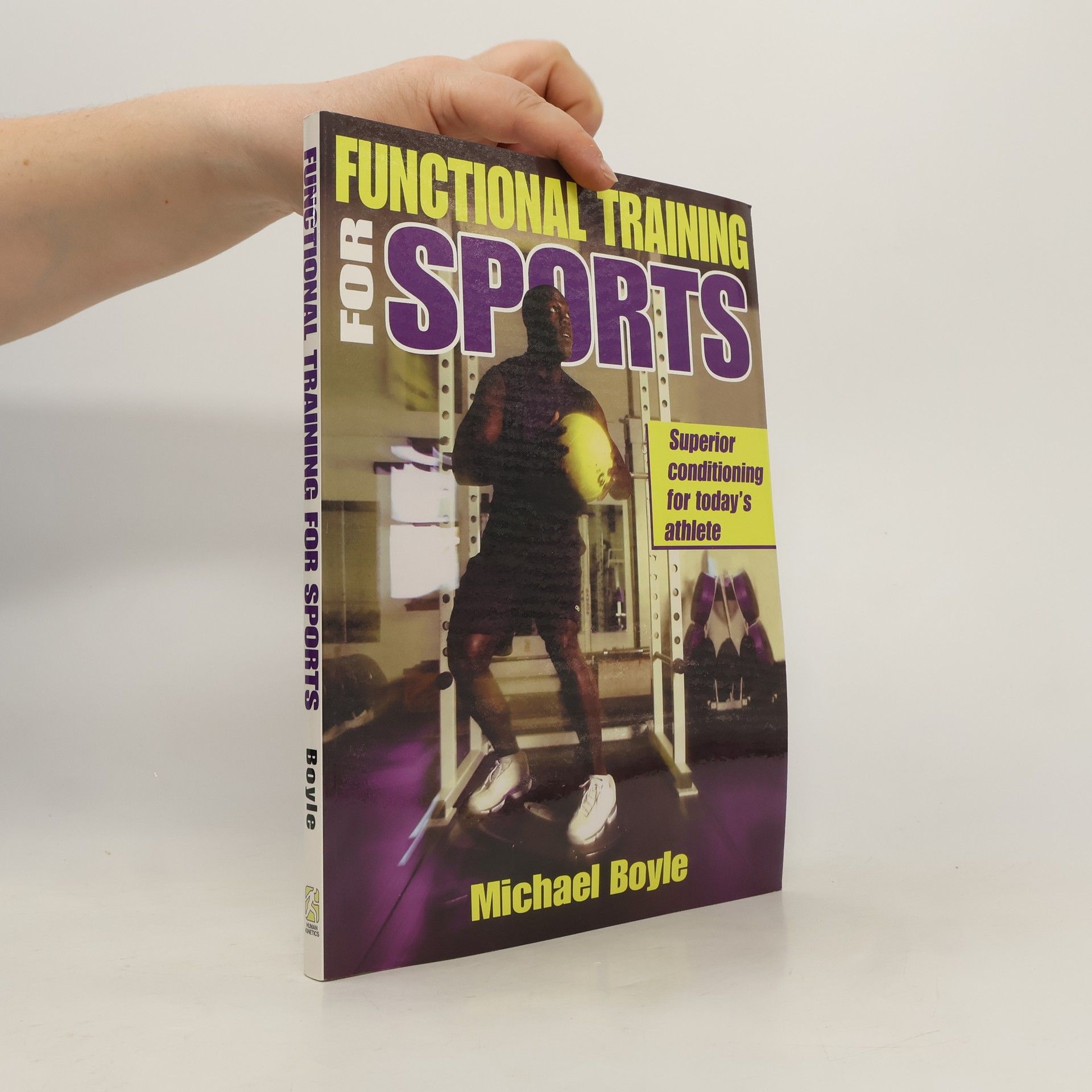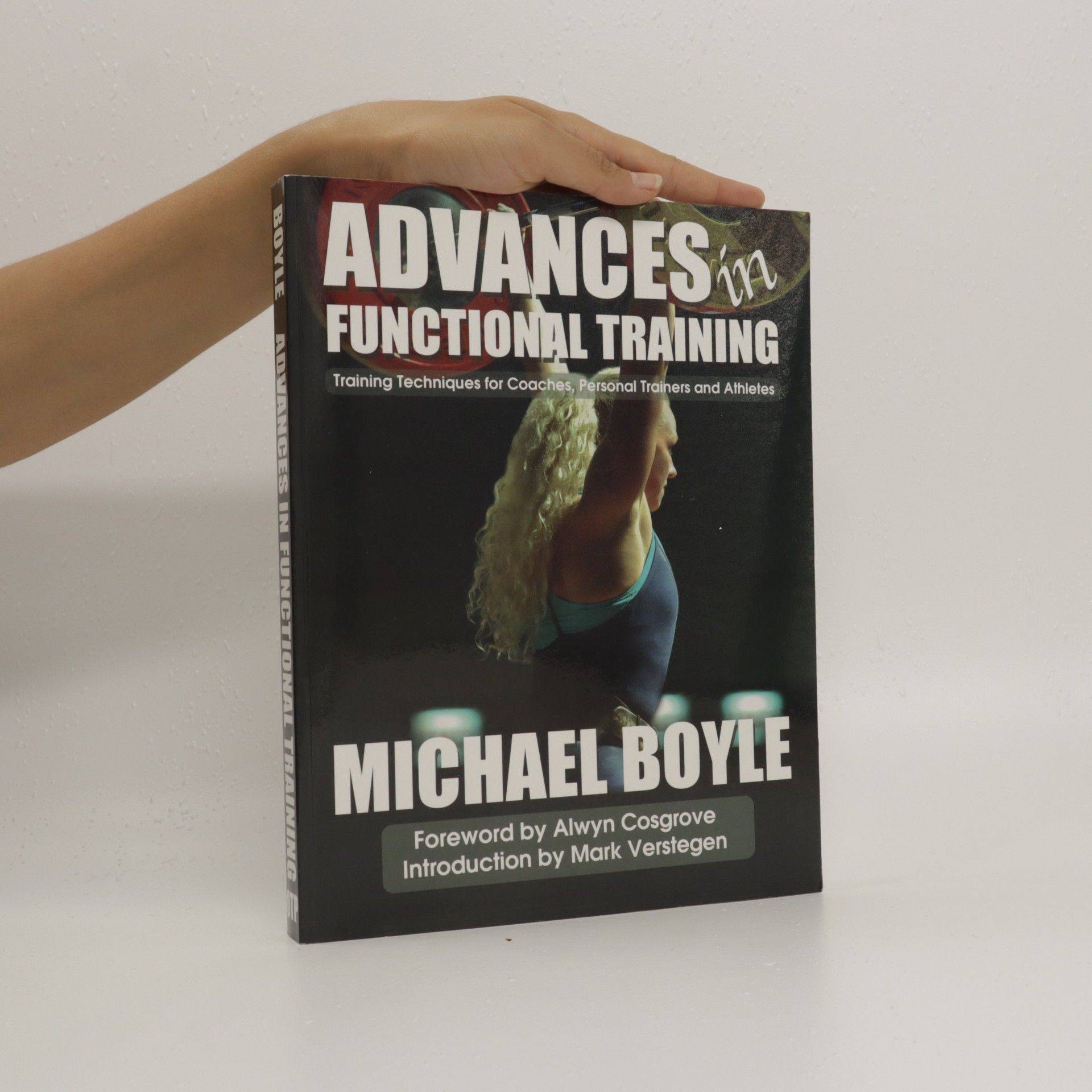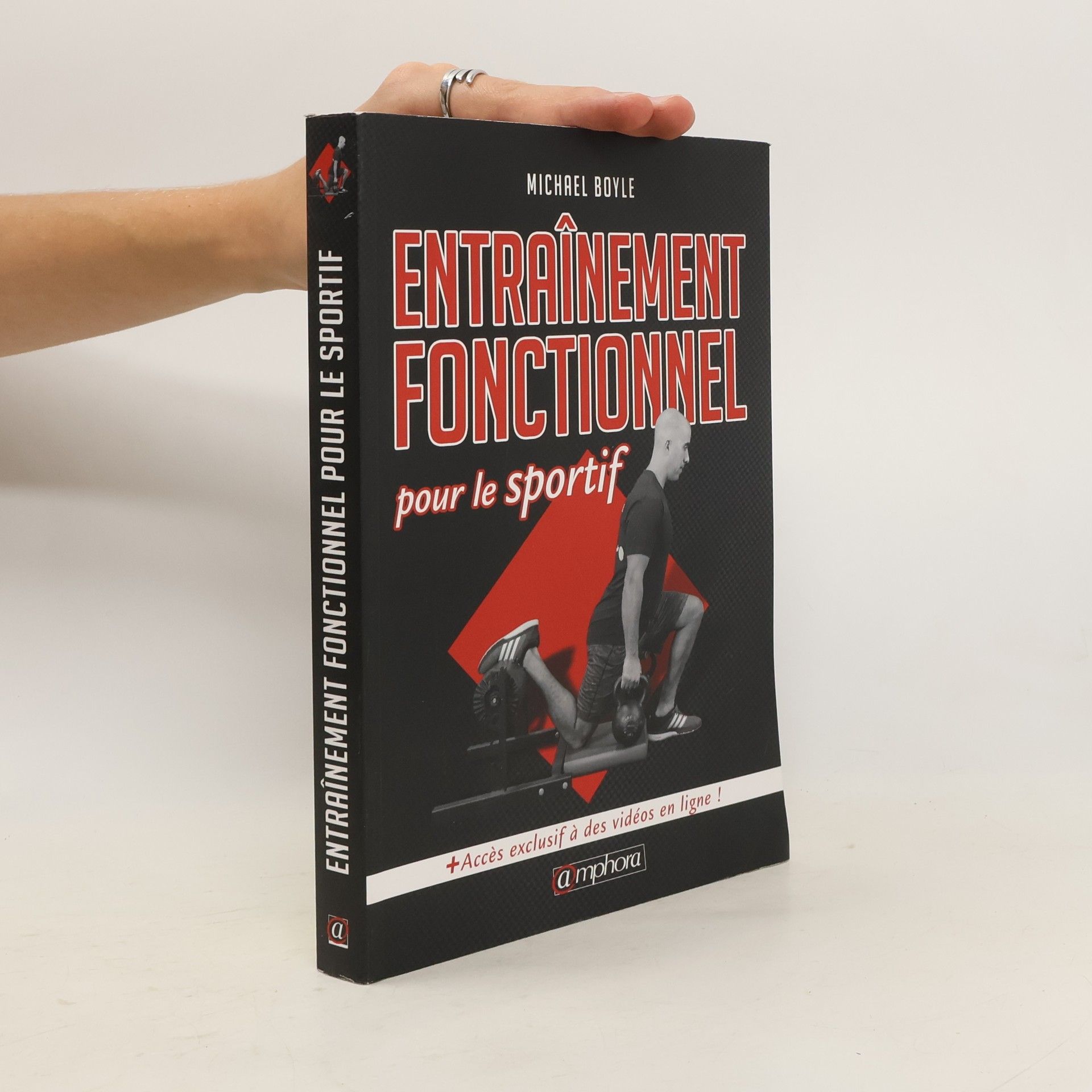When Fishes Flew?: Reconnecting with the Jesus stories
- 310 pages
- 11 hours of reading






Michael Boyle, jeden z popredných koučov športovej výkonnosti, predstavuje koncepty, metódy, cviky a programy, ktoré maximalizujú pohyby športovca počas súťaže. So sériou funkčných hodnotení presne navrhnete špecifický plán pre každého športovca. Progresie posilňujúce cviky dolnej, strednej a hornej časti tela, a napokon aj celého tela, upevňujú rovnováhu, propriocepciu, stabilitu, silu a výbušnosť športovca potrebnú na to, aby vo svojom športe vynikal. Vzorové programy pomáhajú prispôsobovať individuálne tréningové plány podľa potrieb a zabezpečujú všetky stránky príprav na fyzický výkon. Boyleove odporúčania pri navrhovaní programov, používaní masážneho valca, strečingu a dynamickej rozcvičky vychádzajú z najnovších výskumov a bohatých skúseností.
What impact will drone technology have on war and peace in the next century? Will drones create a more peaceful world by reducing risks to pilots, or will they encourage governments to engage in more conflicts due to the allure of remote warfare? Will they replace humans on the battlefield, or will they empower soldiers and peacekeepers to act more precisely and humanely in crisis zones? How will terrorist organizations use this technology against governments? As drones become accessible to various actors—foreign governments, law enforcement, terrorist groups, humanitarian organizations, and UN peacekeepers—understanding their potential impact is crucial. This exploration reveals how drone technology alters strategic choices for both governments and non-state actors by changing risk calculations and expanding objectives on and off the battlefield. Drones are quietly transforming the dynamics of wars, humanitarian crises, and peacekeeping missions, while also introducing new risks to security and privacy. This essential guide highlights that mastering drone technology will be vital for governments and non-state actors seeking power and influence in the coming decades.
Provides trainers and athletes with exercises for improving speed, strength, and power during sport performance, based on best practices in functional training. Describes what functional training is, how to analyze the demands of a specific sport, how to assess the strengths and weaknesses of athletes, how to design a program, and exercises for stretching, and dynamic warm-up; lower body, core, upper body, and pylometric training; Olympic lifting; and performance enhancement programs. This edition updates all information in the original version, Functional Training for Sports, and has new sections on areas like foam rolling and mobility; rewritten chapters to reflect scientific advances, philosophical changes, and additional experience; an updated chapter on core training; and reworked chapters on lower body training. --Publisher's description
In the seven years since the publication of his first book, Functional Training for Sports, new understanding of functional anatomy created a shift in strength coaching. With this new material, Coach Boyle presents the continued evolution of functional training as seen by a leader in the strength and conditioning field.
Bewegungsabläufe perfektionieren - Muskelgruppen stärken - individuelle Schwächen beheben
Michael Boyle, einer der weltweit führenden Experten für Leistungsoptimierung im Sport, präsentiert in dieser Neuausgabe seines Standardwerks Functional Training die Konzepte, Methoden, Übungen und Programme, mit denen Athleten lernen können, sich im sportlichen Wettkampf perfekt zu bewegen. Eine Reihe von Tests dienen als Grundlage, um einen maßgeschneiderten Trainingsplan zu entwerfen, der sich an den individuellen Schwächen ausrichtet. Eine Vielzahl von Übungen mit fortschrittsfördernden Progressionen für Oberkörper, Rumpf, Beine und den ganzen Körper verhelfen zu dem Mehr an Gleichgewicht, Propriozeption, Stabilität und Kraft, das nötig ist, um in der jeweiligen Sportart zu den Besten zu gehören. Beispielprogramme helfen bei der individuellen Trainingsplangestaltung und bilden die Vorlage für ein solides Training, das jeden wichtigen Aspekt der Vorbereitung umfasst. Dabei schöpft Boyle aus seiner jahrelangen Erfahrung ebenso wie aus der aktuellen Forschung und schließt auch neue Empfehlungen zu Foamrolling, Stretching oder zum dynamischen Warm-up mit ein. Diese Neuausgabe des Bestsellers bietet außerdem 71 online abrufbare Videos mit den wichtigsten Übungen, Kommentaren und Analysen.
Build Bigger, Stronger Muscles Through Performance-Based Conditioning
Describes the methods Robert dos Remedios has used to develop hundreds of Division I scholarship athletes, including several NFL players.
Reach a higher level of athleticism with Functional Training for Sports ! Functional training is a complete system of athletic development that focuses on training the body the way it will be used in competition, making it the most efficient and effective form of training today. Author Mike Boyle, renowned strength and conditioning coach formerly with the Boston Bruins, addresses movement, body positions, and abilities that are essential for success in competition. Through Functional Training for Sports , you will improve your total athleticism, enhance your performance, and reduce injuries through exercise progressions that will spur your development potential for specific movement patterns you commonly use in your sport. Providing tests for you to determine where to start, the progressions focus on training for the torso, the upper body, and the lower body. The book also provides detailed programs that incorporate the exercises and methods for these progressions. As you master each progression, you will be preparing yourself to perform in any situation with notable improvements in stability and balance, reaction time, core strength, and power. This whole-body, sport-applied system makes Functional Training for Sports your key to today's most effective and efficient training!